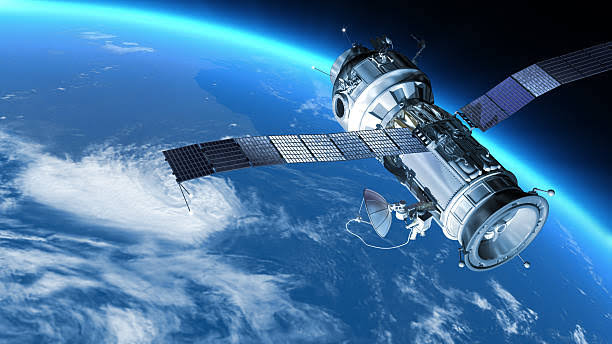The Federal Government has approved the launch of four new satellites. This move aims to strengthen Earth observation and combat insecurity nationwide.
Minister of Innovation, Science and Technology, Chief Uche Nnaji, announced the approval. He spoke at the 22nd National Council on Innovation, Science and Technology (NCIST) held in Abuja from May 12 to 14.
Nnaji revealed that the satellites include three Earth Observation models and one Synthetic Aperture Radar satellite. The radar satellite can capture images at all times, even in poor weather.
“This technology will aid our military. We won’t need to buy foreign images when monitoring areas like Sambisa forest,” he said.
He credited President Bola Tinubu’s Renewed Hope Agenda for the decision. “The president is addressing Nigeria’s challenges with practical solutions,” he added.
The minister highlighted the gap between research and real-world application. He stressed that the country must link research, development, innovation, and commercialization.
“For decades, our universities produced valuable research. But it often remained unused,” he noted. He called for better support for young innovators to bring their ideas to market.
The 22nd NCIST meeting was initially scheduled for 2024 but was delayed. Nnaji promised that the 23rd edition would return to the regular calendar.
“We are working to maintain momentum and make Nigeria more innovative,” he assured.
Stakeholders Present 109 Proposals
Esuabana Nko-Asanye, the Ministry’s Permanent Secretary, said the event urged collaboration among sectors. She said joint efforts could solve key issues like insecurity, climate change, and unemployment.
According to her, 109 memoranda were submitted. They proposed ways to fund local research, boost innovation, and address sector-specific problems in health, energy, and education.
“These ideas reflect how important science and technology have become in national development,” she said.
Experts Urge Higher R&D Spending
Senator George Akume, Secretary to the Government of the Federation, echoed this view. Represented by Dr. Morris Mbaeri, he said innovation must drive national progress.
Prof. Azikiwe Onwualu of the African University of Science and Technology advised that R&D funding should reach 3% of Nigeria’s GDP. He also urged the creation of more innovation hubs linking academia and industry.
“We need to operationalize the National Research and Innovation Fund to coordinate these efforts,” he said.









